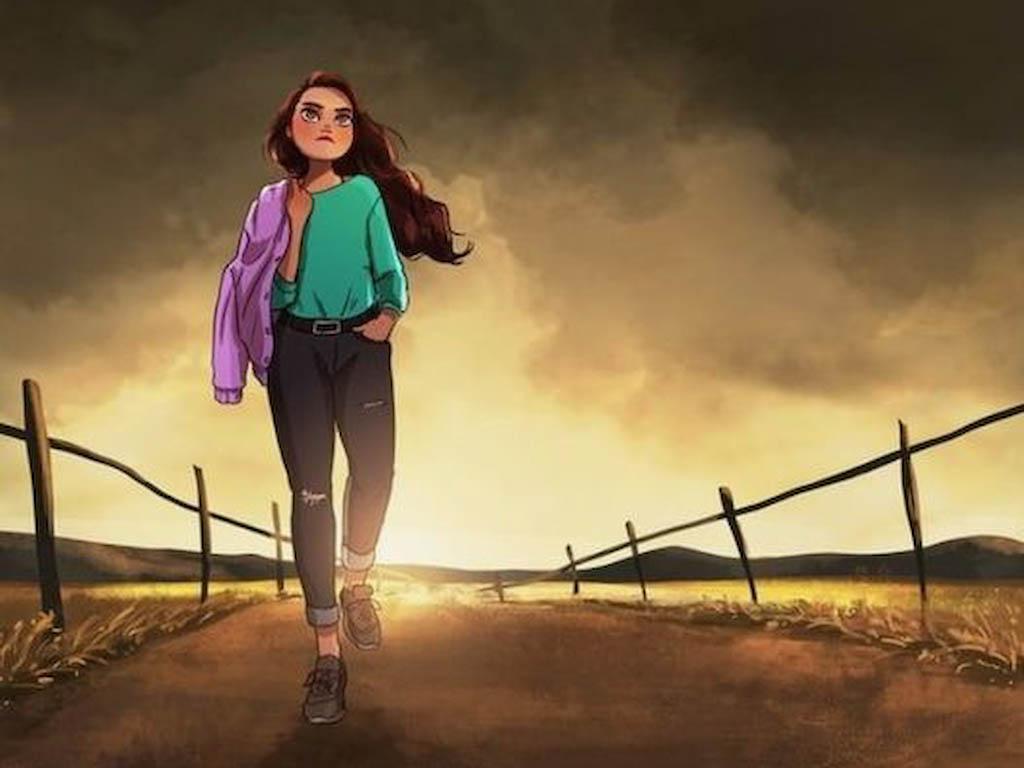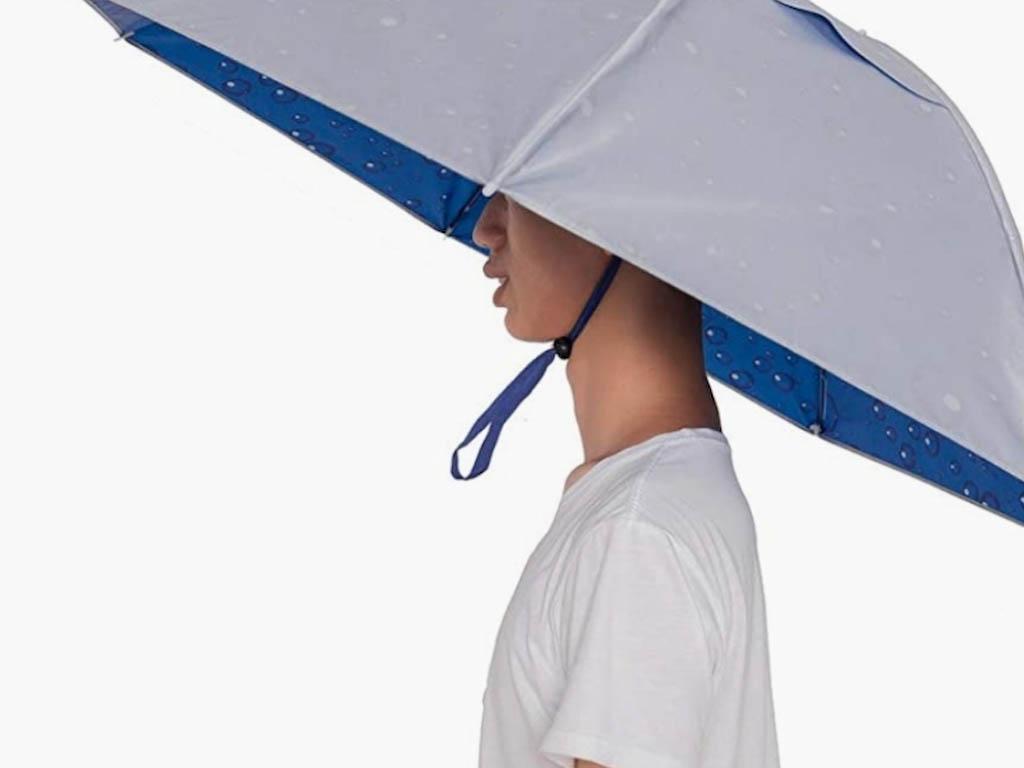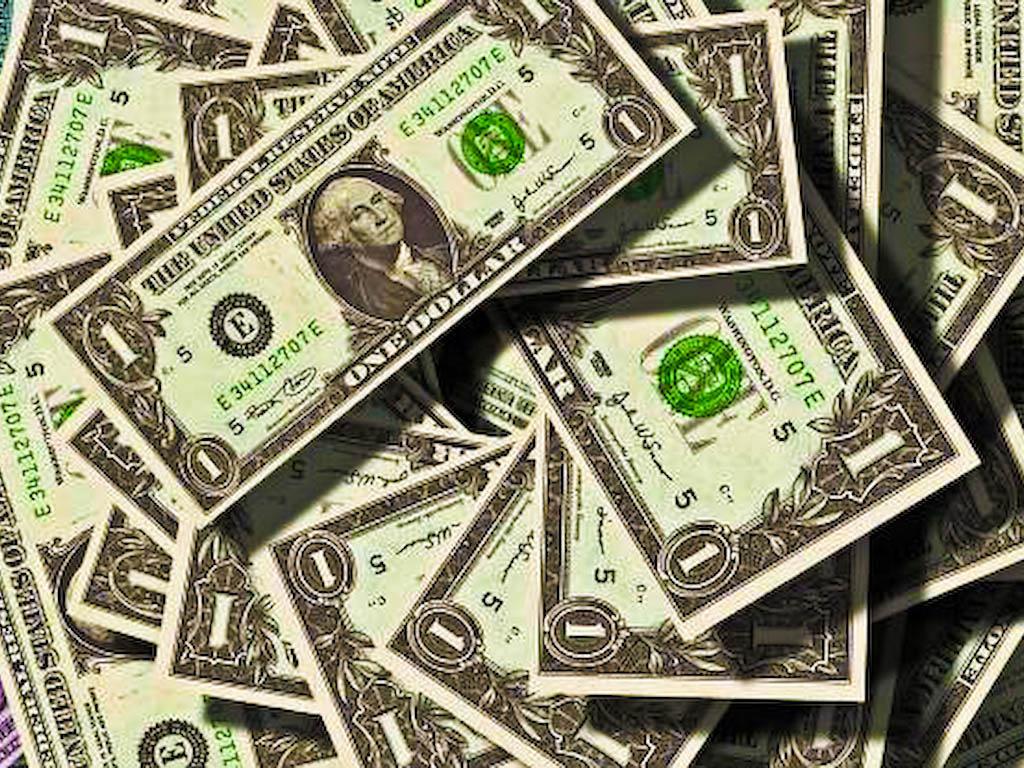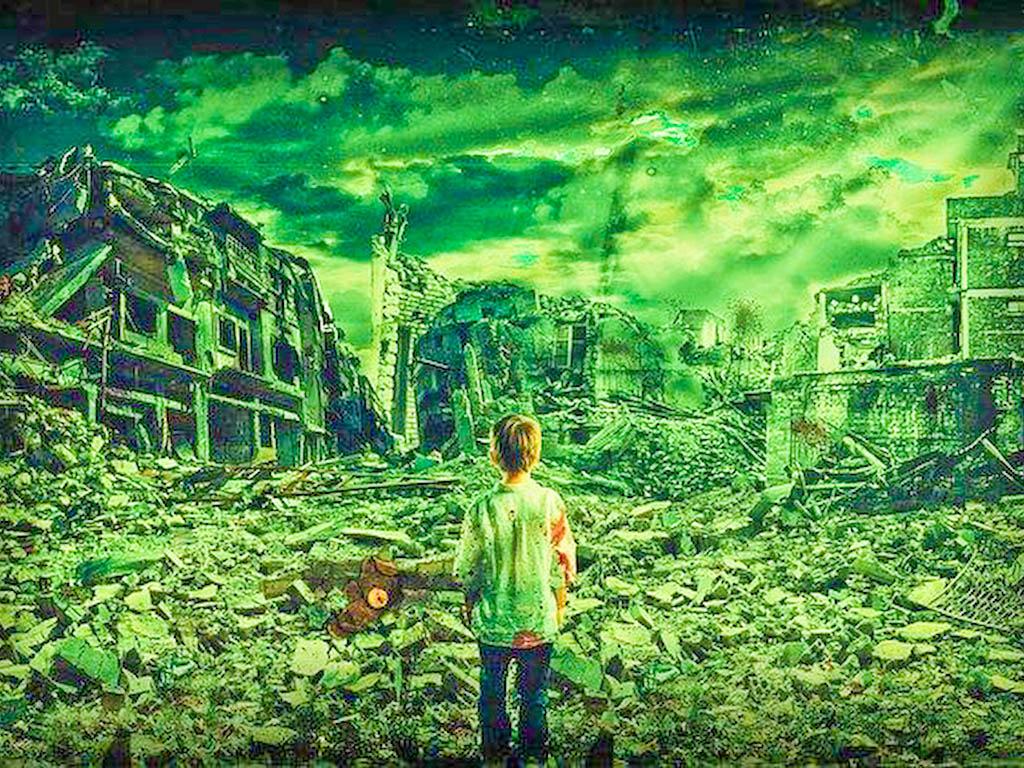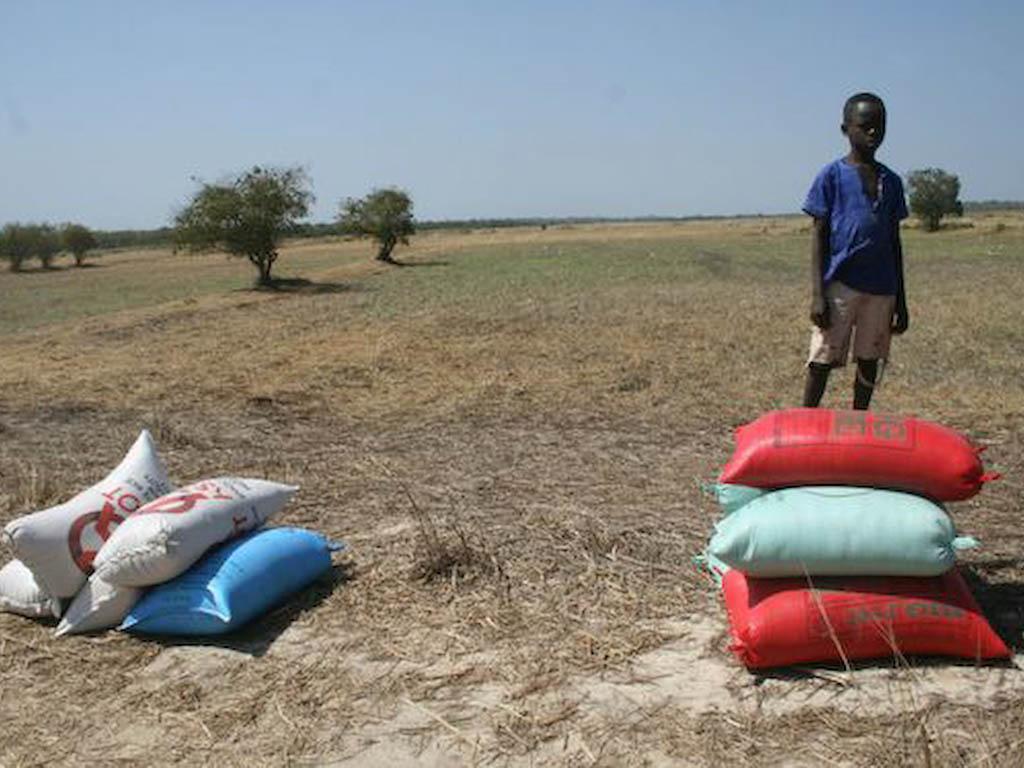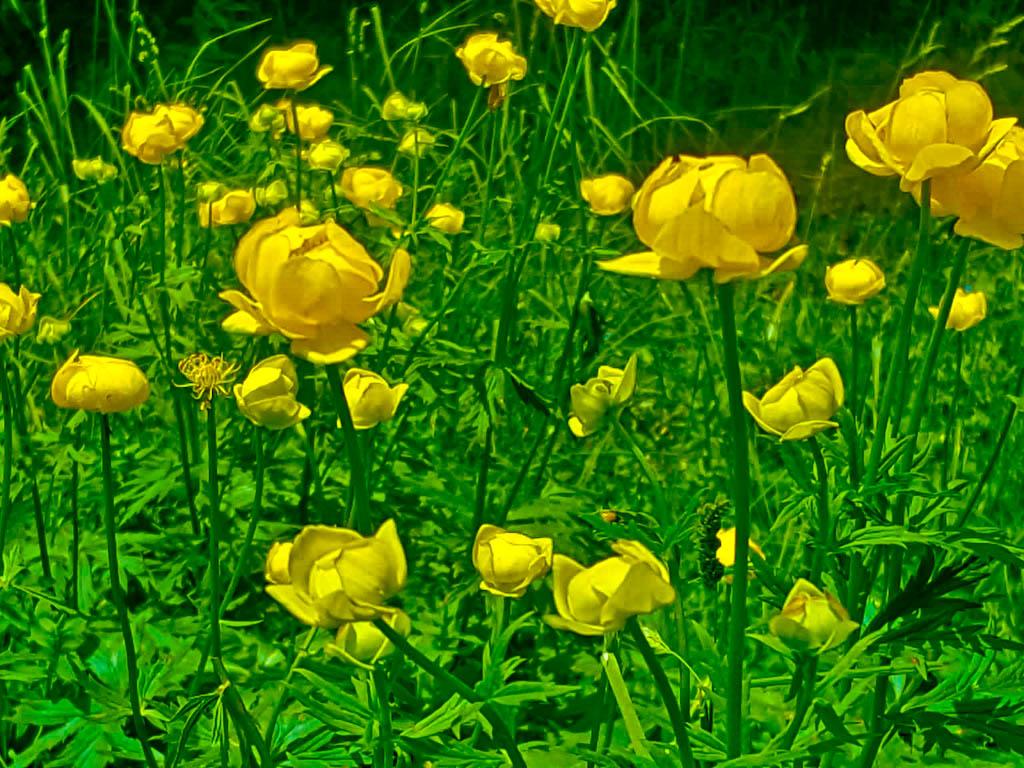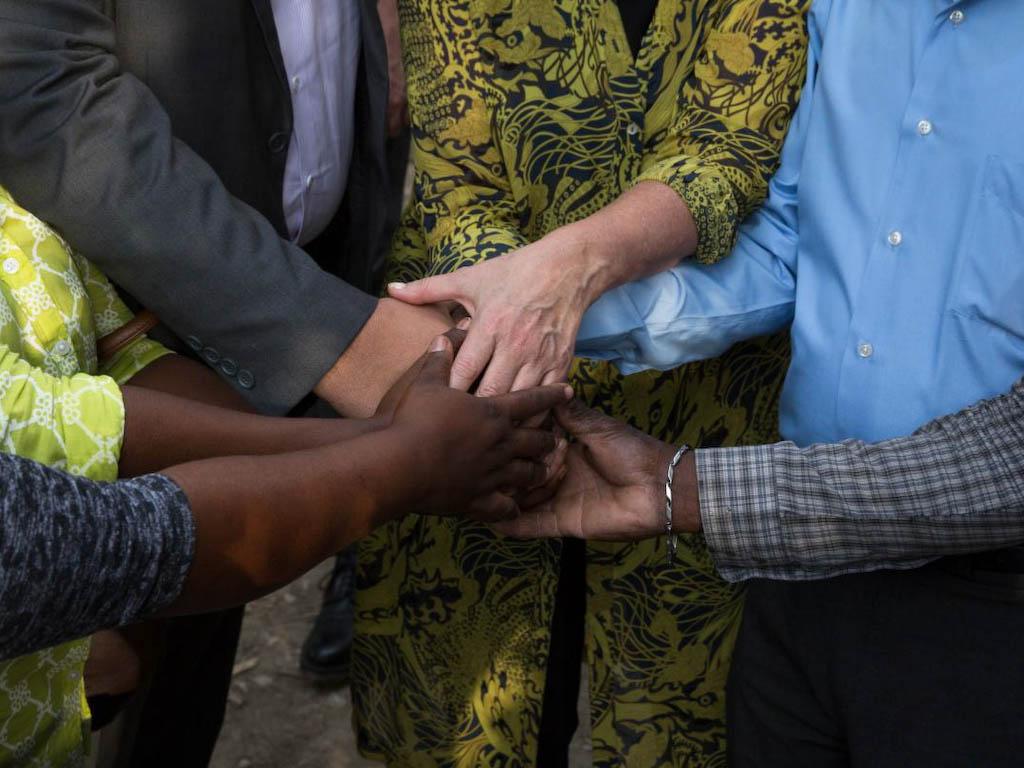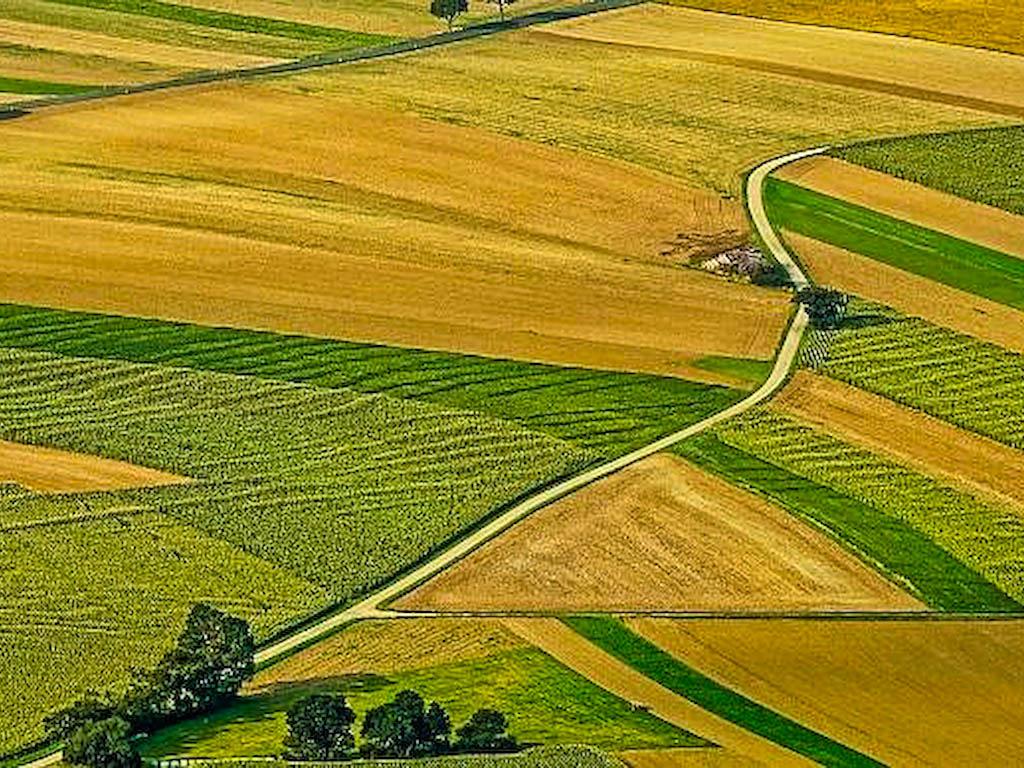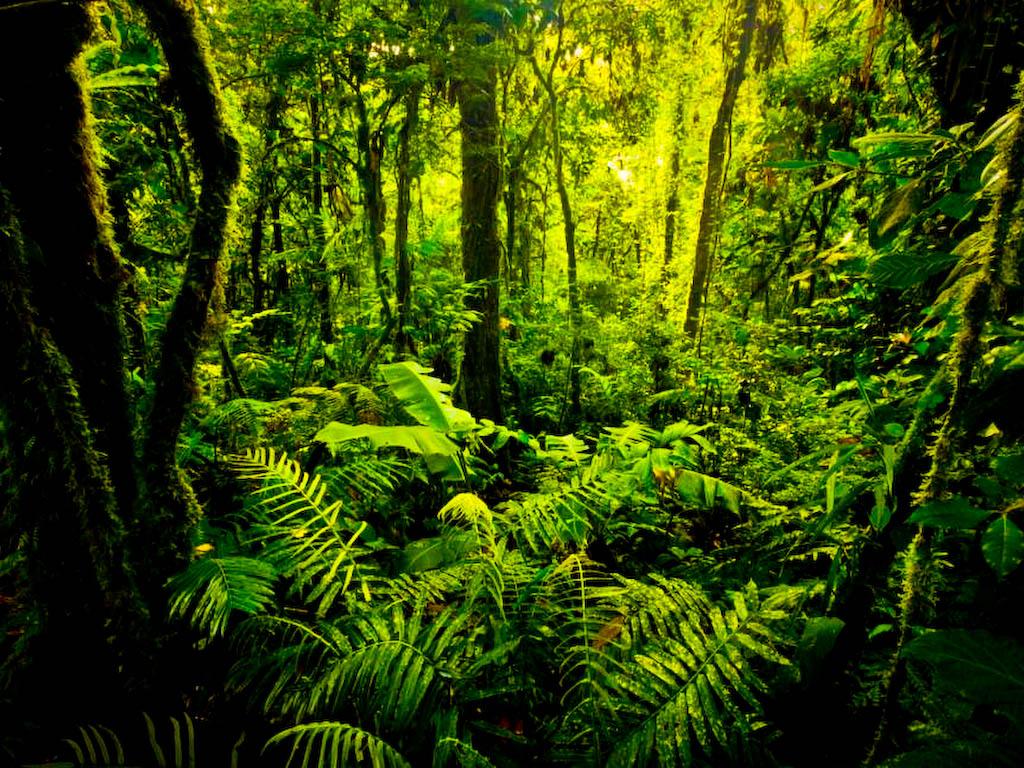Jpic News from John Paul Blog - Vol. 10 - No 7-8
|
THE NEWS OF THE MONTH
Idolatry and societyThe idol before being a theological falsehood (that is, concerning the Christian faith) is an anthropological falsehood: it is a force that perverts man, makes him take and travel in a paths of death where, knowing it or not, he gets lost. The idol is born when the person does not give to herself any prohibition, when she does not accept and does not set any limit: then she wants everything, she wants them immediately, within her reach, without taking into account the others. Only a few decades ago a wall, an insurmountable dividing and invisible line was drawn between believers on one side and atheists and agnostics on the other. This schematic vision, which identified non-believers as the inhabitants of the idolatrous city and Christians as the inhabitants of God’s city, has now been completely removed and, indeed, it appears meaningless, not only because unbelief also passes through the hearts of believers, but above all because idolatry is present on both sides. Yes, Christians and non-Christians live in the same city where idolatry is manifestly an effective dominant and a powerful temptation. It is true that being a Christian should imply a repudiation of idols and false gods, through a concrete change of life from worldliness, but in reality, falling and alienation towards idols mark the believers’ path. The believer and the non-believer find themselves side by side in the continuous confrontation with the idolatrous dominants: the fight against idolatry should therefore be a commitment of both. The idol, in fact, before being a theological falsehood (that is, concerning the Christian faith) is an anthropological falsehood it is a force that perverts a person, makes her take and travel in a path of death where, knowing it or not, she gets lost. The idol is born when the person does not give to herself any prohibition, when she does not accept and does not set any limit: then she wants everything, she wants it immediately, within her reach, without taking into account the others. Go on reading | |
|
THE GOOD NEWS
Increasing Protections for Children OnlineOver the past year, tech companies have been in the spotlight about the need to protect children and address the proliferation of child sexual abuse material (CSAM) on the internet. In October, a former Facebook employee testified before Congress that the company knowingly spread misinformation and content that harms children. At the same time, High Tech companies have met with anti-trafficking advocates and stakeholders to share proposals for monitoring and combatting harmful content on their platforms. ECPAT-USA has been at the center of this issue, advocating for child protection on Capitol Hill. In response, Congress is prioritizing legislation that assesses the psychological impact of technology on children, increases safeguards for privacy and protection, and limits the ability for companies to refuse responsibility in favor of measures that stand to protect profit margins. Senators Edward Markey and Bill Cassidy introduced S.1628, the Children and Teens’ Online Privacy Protection Act. This bill takes meaningful steps to protect children and teenagers by updating the Children’s Online Privacy Protection Act (COPPA) so that privacy rules meet the demands of the 21st century. CSAM has drastically increased in the last year, and reducing the availability of children's personal data online is foundational to reducing harms that exist on the internet. In the House, Representative Kathy Castor introduced H.R. 5703, Protecting the Information of our Vulnerable Children Act. This bill also builds upon COPPA to modernize current internet safeguards. Companies have impeded upon the current minimal privacy standards, leaving children more susceptible to victimization online. Predators are strategic in targeting children, and addressing privacy and protection is an important step to ensure safety online. With continuous advances in technology, children face new risks daily, calling for a multidisciplinary approach to halt it. ECPAT-USA remains committed to protecting children by supporting legislative initiatives that prevent these unconscionable harms.
She Was A Victim Of Child Sex Trafficking - And Sent To Prison. Now She Has A Chance At Freedom: In 2011, when Tiffany Simpson was 17, she was arrested for child sex trafficking in Georgia, the very crime that had happened to her. An upcoming habeas hearing will determine if Tiffany, now 28, will have a chance at freedom. | |
|
THE WORST NEWS
What Pandora hidesA leak and a journalistic investigation reveal dubious investments in tax shelters. They call them Pandora Papers, but in reality, they are 12 million computer files leaked from various law firms that, thanks to a journalistic investigation baptized with that name, is exposing possessions, companies and agreements hidden in tax shelters of almost 30,000 beneficiaries. With such as data number, it is not surprising that the scandal affects rich people all around the world, including a few Africans. Specifically, the names of Uhuru Kenyatta, Denis Sassou-Nguesso and Ali Bongo - active presidents of Kenya, Republic of Congo and Gabon, respectively - among others, have appeared, up to now, since the publication of the results is still on the way. Uhuru Kenyatta, along with his mother and siblings, runs 13 tax shelter businesses worth more than million, according to the investigation. Building up these opaque societies suggests illicit activities in a president who had recently said he wanted to leave as his heritage a fight against corruption and transparency. Instead, it is well known that Kenyatta and his family maintain businesses related to transportation, insurance, hotels and the media, among other sectors. The Kenyan president had in October the first bilateral meeting with the US Biden Administration at the White House, where he possibly had to swallow hard, as the organizers included the Pandora Papers on the to be discussed agenda. The meeting already incorporated regional issues such as the conflict in Tigray or the availability of vaccines in Africa. The introduction of journalistic disclosure was justified by "the need to bring greater transparency and accountability to national and international financial systems." After the publication, Kenyatta expressed his support to the investigation, saying that it would help improve "the financial transparency and openness we want for Kenya and for the whole world", but without going into details related to his own involvement. Go on reading | |
|
CELEBRATING!
Women’s discrimination in the church is an insult to divine gloryFor the series of portraits dedicated to women who take their voice in the Church, Federica Tourn meets the theologian Simona Segoloni for Jesus magazine. Simona writes about gender, institutional violence, the women’s marginalization who cannot express themselves except “by men’s courtesy”. The scenario is the Catholic Church and she is Simona Segoloni, 48, professor of Systematic Theology at the Theological Institute of Assisi. She writes and speaks with determination, without hiding a mixture of impatience and rebellion due to the evident disconnection between the reality of women’s passion and service in the Church and their frustration, once again, while recording the misrecognition of their feminine talents. "It is as if we have many billions available to revive the country and we do not use them," explains Segoloni. “That of women is an obvious ecclesial belonging: the Church simply would not exist without them. And yet, despite this, every day women experience the difficulty of finding a space on par with men and the difficulty of having their specific gift recognized in evangelical witnessing”. In a word, they experience exclusion: they are the lamp placed under a bushel, and they are still the "second sex", as Simone de Beauvoir wrote in 1949, stigmatizing women’s condition of inferiority both in history and in society. Go on reading | |
|
TAKE ACTION NOW!
Working to Mitigate Climate ChangeClimate reporter Kendra Pierre-Louis says, since the story of Adam and Eve’s expulsion from the Garden of Eden, people and nature are framed as “always in opposition with each other,” and when we speak of climate change and making improvements in the environment, there is an undercurrent of sacrifice in it. She says, “What if, instead, the story we tell about climate change is that it is an opportunity? One for humans to repair our relationship with the Earth and re-envision our societies in ways that are not just in keeping with our ecosystems but also make our lives better."* The Laudato Si! Action Plan, launched by the Vatican in 2021on St. Francis Feast Day, Oct. 4th, commemorating Pope Francis's 2015 encyclical on integral ecology (see on Laudato Si’ Action Platform) is all about repairing that relationship. It calls for ecological spirituality education and adopting "liberating,” simple lifestyles. That education "proposes an alternative understanding of the quality of life and encourages a prophetic and contemplative lifestyle, one capable of deep enjoyment free of the obsession with consumption” (LS 222-223). Let us begin with a few ideas on taking better care of the earth by lowering your carbon footprint, some adapted from Catholic Climate Covenant (10 Ways You Can Make a Difference). Your Carbon Footprint is the amount of carbon dioxide and other carbon compounds emitted by your consumption of fossil fuels. The EPA (United States Environmental Protection Agency) has a free Carbon Footprint Calculator. There are some simple, common sense ways to be more energy efficient: Rather than immediately relying on air-conditioning or your thermostat, on warm, sunny days, close your blinds or curtains to block heat. In colder weather, open them during the day to warm your room. Of course, when you leave the house, turn down your air condition or heat. In general, learning to live with a few degrees warmer in the summer or cooler in the winter will reduce your energy consumption and increase the strength of your body. Do not jump in the car for every errand. Instead, plan and combine multiple errands into one trip to reduce the amount of fossil fuel you use. If you do not already drive a hybrid or electric car, dream of how your next car will be one. According to the EPA, livestock production accounts for 4% of Americans’ greenhouse gas. Plan more meatless meals to take better care of Creation. There are many websites with great suggestions for meatless meals. Reduce, Reuse, and Recycle! Bring your own bags when shopping and look to buy items with minimal packaging. Find where and how to recycle almost anything in your area at Welcome to The Earth911 Recycling Search! The EPA says that water processing accounts for approximately 3% of energy use in the United States. Saving water means saving energy. *Kendra Pierre-Louis, “Wakanda Doesn’t Have Suburbs,” All We Can Save: Truth, Courage, and Solutions for the Climate Crisis, 2020, pp.138-144 | |
|
KNOWING BETTER THE UNITED NATIONS
UN launches global plan for clean and affordable energySome thirty United Nations agencies and the World Bank launched an action plan on May 4, 2022, under the UN-Energy label, to promote clean and affordable energy programs, mainly in developing countries. This UN’s action plan "represents the Organization's collective response to current global energy and climate challenges," said UN Development Program Administrator and UN-Energy Co-Chair Achim Steiner. “It is essential that the commitments made at the 2021 High-Level Dialogue on Energy and at COP26 -the 26th Conference of the UN Parties on Climate Change, held in Glasgow, United Kingdom, in 2021- become actions on the ground, especially in support of the most vulnerable,” added Steiner. The plan establishes a framework for collective action of almost 30 UN and allied organizations to support, facilitate and accelerate access to electricity for an additional 500 million people, and the provision of clean cooking systems for more than 1 billion people. It also aims to increase up to 100% renewable energy capacity worldwide, eliminate plans for coal power production after 2021, create 30 million jobs in the renewable energy and energy efficiency sector, and double annual investment in clean energy. Go on reading | |
|
KEEP HOPING
The cracked jugA water seller every morning goes to the river to fill his two jugs and goes to the city to sell the water to his customers. One of the jugs, cracked, leaks water; the other, brand new, brings in more money. Poor cracked jug feels frustrated. One morning she decides to share her grief with her owner: “You know, she says, I am aware of my weakness. You are losing money on me because I am half-empty when we get to town. Forgive my weaknesses”. The next day, on the way back from the river, the seller calls out to his cracked jug and says to her, “Look on the side of the road”. "Wow, it's pretty, it's full of flowers!" exclaimed the jug. "It's thanks to you," replies the seller. “I bought a packet of flower seeds, and I sowed them along the road, and you, without knowing or wanting it, you had watered them every morning.” We are all little cracked ones, but God, if we ask him, and life, if we trust it, know how to work wonders from our weaknesses. | |
|
WORTH THINKING ON
The web giants turn eyes towards AfricaThe Comboni Magazine, Nigrizia, talks in an article about the large investments underway to cover all of Africa with internet services. A way to create development or to point to a new market? Interview with Antonella Sinopoli: “We hope this process will help above all the youngest generations”. Always attentive to the African continent’s events, the Comboni missionaries’ web site Nigrizia, in an article by Antonella Sinopoli, speaks about how large investments are underway to wire the African immense territory to allow the use of network for the whole population, especially those 700 million Africans who have never had internet. Today everything goes via the internet and it is important for Africa to be connected with the rest of the world. The journalist, in the interview granted to Vatican Radio - Vatican News, talks about this mega project casts both light and shadows. Antonella Sinopoli, what to say about this coming involvement of the African continent in the web world? Let's say that the web world has been taking particular interest in Africa in recent years. Actually, there has always been a great deal of interest on the continent, as regards the exploitation of resources in the past, and today even as regards slavery and colonization. Two elements make us look at this continent with particular eyes now: first the emigration phenomenon, second the digital investments. Today all real achievements go through digital and therefore, these billions of euros or dollars investments are the great challenge of the future. Digital is still a virgin land on the African continent, where large companies can play the development card. We are talking about billions in order to wire up the continent, that is, to connect the people who live there with the whole world. Then we would see how much this will be an advantage for people or how much it will represent only a real business for the web giants. Go on reading | |
|
RESOURCES
The seeds of profitHow did a handful of companies take over the cultivated biodiversity property? From this question starts " Chi possiede i frutti della terra - Who owns the fruits of the earth", a book by Fabio Ciconte, the Earth association director! A journey that intertwines history, legends and field investigations to tell the incredible privatization process of seeds and plants, stolen from farmers and transformed into a flywheel of billionaire profits. For over ten thousand years, farmers have freely stored, selected, exchanged or sold their seeds, using and reusing them to produce food. A century of radical transformations in food systems has dramatically downsized these practices. We are today at the point that of the six thousand different plant species used as food just nine cover 66% of world production. FAO collected in a recent report dedicated to the state of biodiversity for food and agriculture, these alarming numbers that show how local varieties grown by farmers around the world are disappearing at an unprecedented rate. The result is our diets’ standardization and lack of choice, phenomena that have their roots in a progressive push towards the privatization of the most basic means of subsistence - the seeds - which began in the late nineteenth and early twentieth centuries. To the discovery of this story, indeed of many apparently parallel but intimately intertwined stories, Fabio Ciconte brings us with his latest book, published by Laterza. "Who owns the fruits of the earth". It is a text halfway between journalistic investigation and historical reconstruction, a key collection of anecdotes and at the same time a dive into the depths of today's agricultural economy, in the successful attempt to connect causes and effects. Go on reading | |
|
WITNESSING
Before the Flood: The dam that threatens one of Africa’s oldest national parksForests, biodiversity and the climate are under threat from a major hydropower project in the Democratic Republic of the Congo (DRC), which is linked to international banks and investors, but opposed by local civil society activists. Our investigation analyses leaked reports and diplomatic correspondence, and shows how the Sombwe Dam project threatens forests and rare species of animals in Upemba National Park, in order to power the region’s copper and cobalt mining belt. Large swathes of tropical dryland forest would be flooded to create a reservoir up to one billion cubic meters in size. Not only would this project have a disastrous impact on a vital habitat by flooding part of the park, but it also appears to be in violation of Congolese conservation law. Upemba National Park, one of Africa’s oldest national parks, has come under severe pressure in recent years. Successive waves of poaching have left local wildlife populations “hanging by a thread”, according to conservationists. Park rangers have faced repeated and deadly attacks from local Mai-Mai militias. The Sombwe dam project intensifies these pressures, and may pose the greatest environmental threat to the park to date. The proposed flooding of forests may also lead to over a million tons of dangerous greenhouse gas emissions and lost carbon storage according to an analysis for Global Witness, and comes against the backdrop of a number of high-profile international pledges to curb deforestation. The Sombwe dam would be a great detriment to one of the DRC’s largest protected areas and to the rare animal and plant species found there. It also risks depriving certain communities in the region, who live chiefly from fishing, of their main livelihood. The Congolese authorities should call a halt to this project. Go on reading |

- Butembo (MJL) – RD-Congo
- Please, share your suggestions, opinions, doubts and ideas writing to pezzijp@hotmail.com
- You can subscribe also by writing to pezzijp@hotmail.com
- For all back issues www.comboni.org
- Copyright © www.jpic-jp.org

